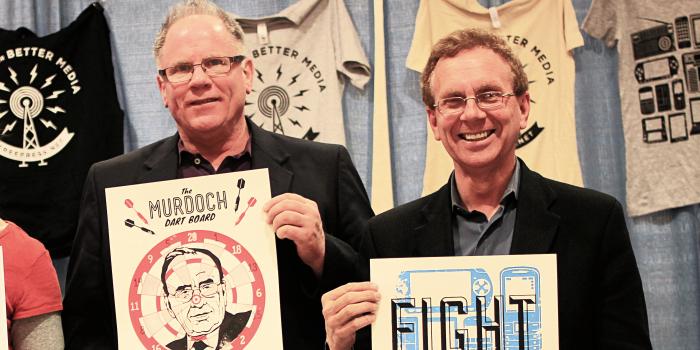Free Press Calls on Facebook to Scrap Oversight Proposal and Go Back to the Drawing Board

WASHINGTON — On Monday, Free Press called on Facebook to shelve its plans to form an independent oversight board that, in the company’s words, “creates accountability and oversight of [Facebook’s] content policy and enforcement decisions.”
In a comment submitted following the company’s call for public reaction to its proposal, Free Press said that Facebook’s feedback process itself fell short: “It is not nearly iterative enough, nor transparent enough, to provide any legitimacy to whatever institution the company is seeking to create.”
Our comment notes that the proposal for the oversight board itself is fundamentally flawed.
“The concept of an Oversight Board is meaningless if Facebook’s internal procedures and policies are less-than-transparent and result in disparate impacts for racial, religious, and other minorities and marginalized communities all across the globe,” we wrote in our response, which we submitted to Facebook. “If Facebook is still enamored with the concept of an independent Oversight Board, it should go beyond just adjudicating ‘tough’ content decisions and instead empower the board to audit Facebook’s internal processes to recommend policy, enforcement and transparency changes that should be implemented in order to lead to meaningful change.”
Facebook’s plan to create this independent entity comes as the company has experienced a series of scandals involving how it decides which user content to block. Other controversies have emerged over the company’s misuse of user data and spreading of misinformation and hateful propaganda.
With the oversight board the company hopes to create a one-size-fits-all global content-moderation scheme through a quasi-judicial process — in effect creating a Supreme Court for content moderation.
Free Press called on Facebook to instead adopt efforts like the model corporate policies outlined by Free Press and our partners in the Change the Terms coalition. The Change the Terms framework demands that Facebook apply a racial-justice lens to content moderation to ensure that the company protects the speech of marginalized communities and scrutinizes users engaged in hateful activities.
Free Press Policy Counsel Gaurav Laroia made the following statement:
“Facebook should publicly post all comments it receives about its proposed oversight board in an open and transparent manner. At the moment Facebook hasn’t committed to do any of these things. As a result, it’s unclear whether the final makeup of the oversight board will reflect a consensus view of the comments, whether people panned or praised the initial proposal, or whether the company created this process so it could give a veneer of legitimacy to plans it already had in place.
“What we know of Facebook’s proposed outline for an oversight board shows that it’s unlikely to work. Such judicial processes are complex and often adversarial. They are fundamentally about giving people a venue to vindicate their rights. Facebook has not yet done the work of explaining the rights of its users vis-à-vis the platform. In fact, it hasn’t bothered to explain what the rules truly are. A judiciary can’t meaningfully operate in this fog.
“The board as imagined by Facebook’s draft charter seems designed to offload responsibility for its content-moderation policies to part-time committee members. The company should be honest about the powers and responsibilities the oversight board can reasonably expect to have.
“An independent advisory and investigative body would help the company avoid these disasters. We might welcome it if the board were empowered to dig into the company’s processes and publicly air its findings on Facebook’s content-moderation policies — or if it were allowed to examine disparate impacts on marginalized populations. But we haven’t heard such a proposal from the company.
“Users need real rights, reflected in the company’s governance structure, to have confidence in the company. So far Facebook is offering just empty promises and a new external bureaucratic process that will likely lead nowhere.”




